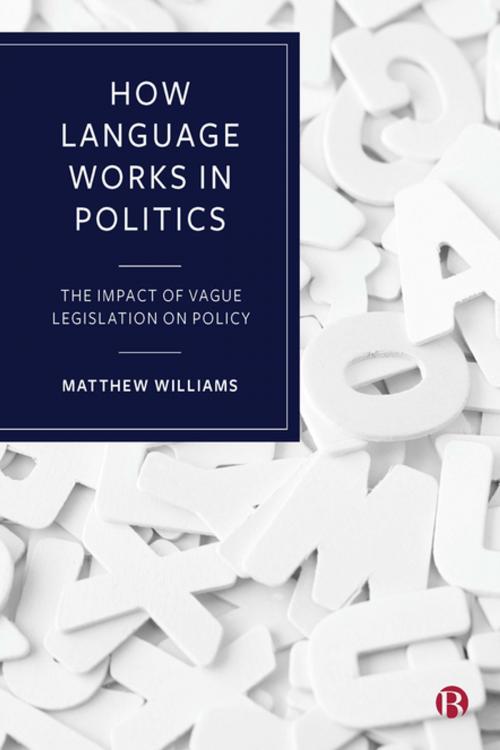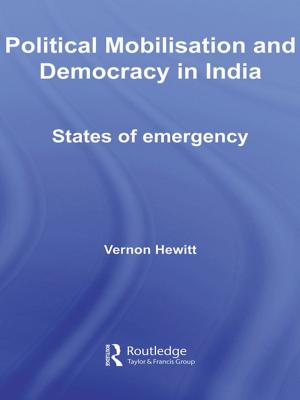How language works in politics
The impact of vague legislation on policy
Nonfiction, Social & Cultural Studies, Political Science, Politics, Practical Politics| Author: | Williams, Matthew | ISBN: | 9781529200232 |
| Publisher: | Bristol University Press | Publication: | June 26, 2018 |
| Imprint: | Bristol University Press | Language: | English |
| Author: | Williams, Matthew |
| ISBN: | 9781529200232 |
| Publisher: | Bristol University Press |
| Publication: | June 26, 2018 |
| Imprint: | Bristol University Press |
| Language: | English |
There were more colons used in legislation in 2015 than there were words enacted in 1900. Using analysis from machine readings of all legislation enacted between 1900 and 2015, this book discusses the social impact of increasingly elastic legislative language on the contemporary workings of the British constitution. The hot-button debates of our time — from immigration to European integration, to the creeping power of judges — have, at their core, battles over what policy instructions are authoritative. The book encourages readers to connect the dots of British statecraft, and to understand how, exactly, public demands are transferred into laws that are then implemented with greater and lesser degrees of success. Crucially, it shows that vague legislation has a tremendous impact on policy delivery, disproportionately affecting the weakest, in areas including immigration, homelessness and anti-discrimination.
There were more colons used in legislation in 2015 than there were words enacted in 1900. Using analysis from machine readings of all legislation enacted between 1900 and 2015, this book discusses the social impact of increasingly elastic legislative language on the contemporary workings of the British constitution. The hot-button debates of our time — from immigration to European integration, to the creeping power of judges — have, at their core, battles over what policy instructions are authoritative. The book encourages readers to connect the dots of British statecraft, and to understand how, exactly, public demands are transferred into laws that are then implemented with greater and lesser degrees of success. Crucially, it shows that vague legislation has a tremendous impact on policy delivery, disproportionately affecting the weakest, in areas including immigration, homelessness and anti-discrimination.















